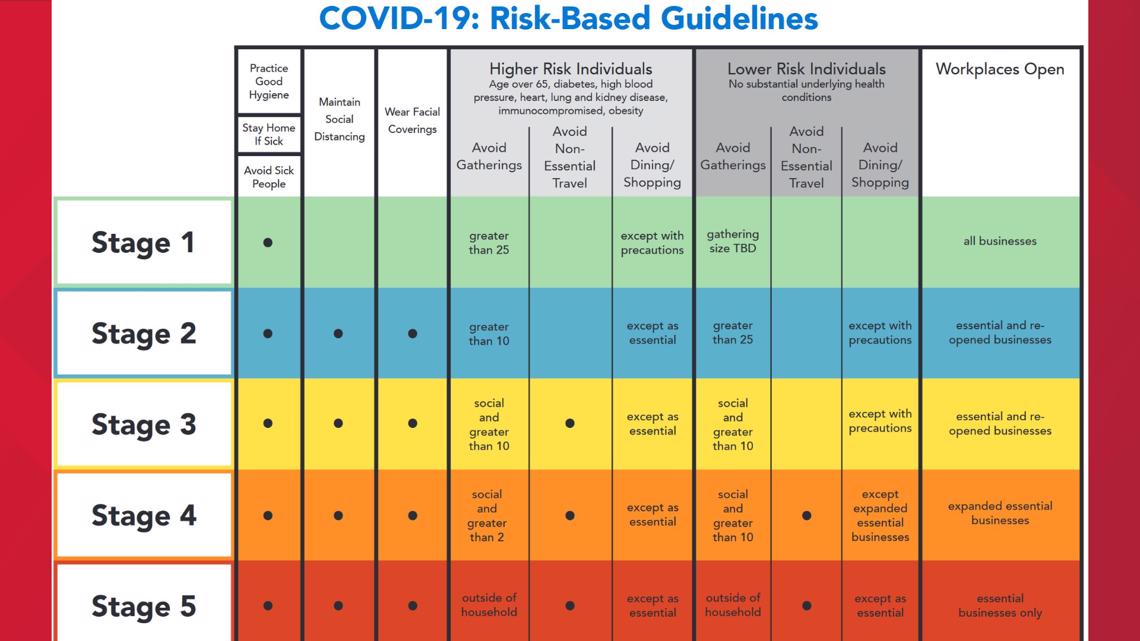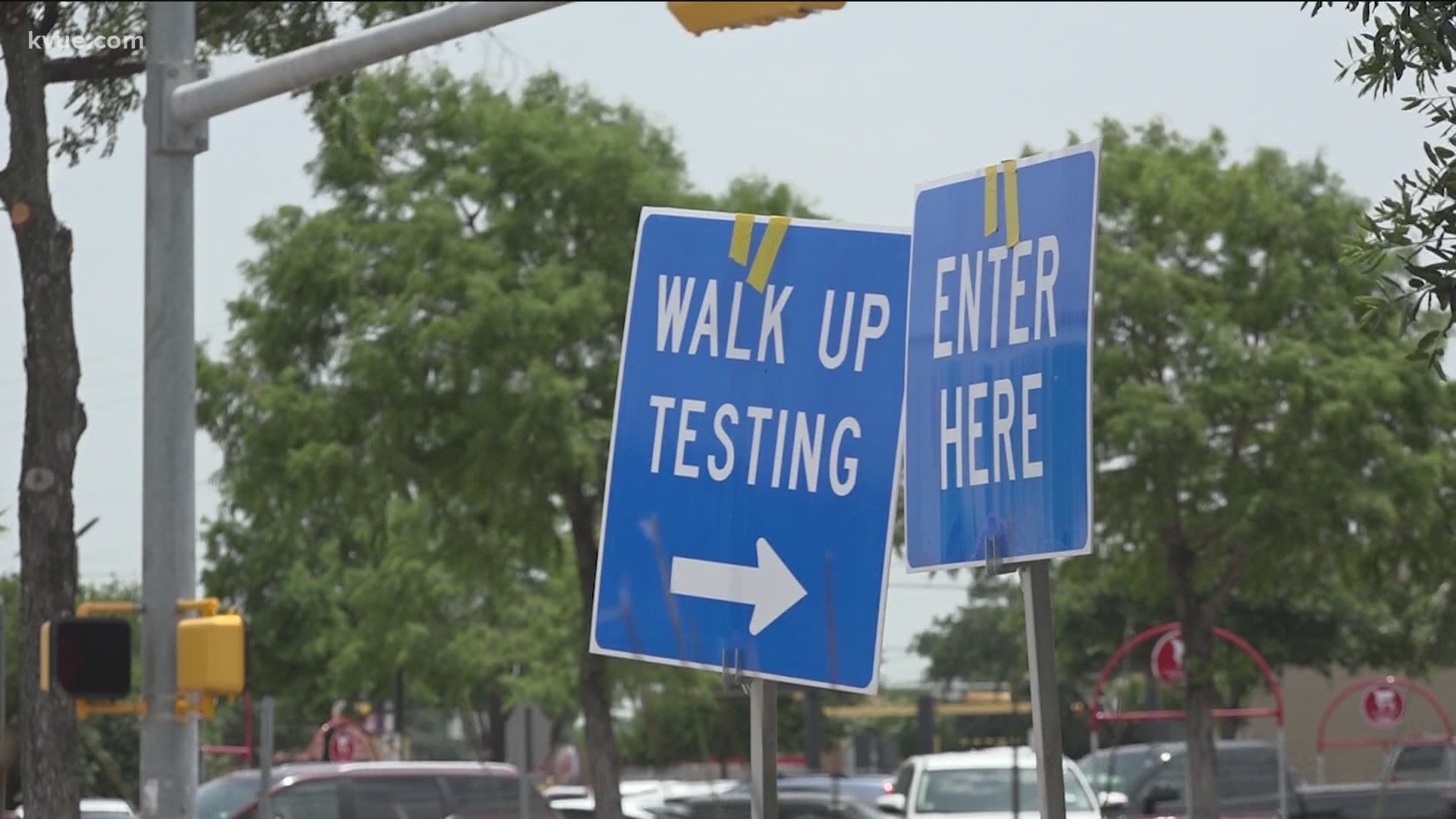AUSTIN, Texas — On Monday, the seven-day average of daily COVID-19 hospitalizations in Austin-Travis County jumped to 64.6.
On Sunday, that number was at 61.6. If it reaches 70, Austin-Travis County's COVID-19 risk guidelines say non-essential businesses will be shut down again. For Councilmember Greg Casar, that puts the city between a rock and a hard place.
"We are dangerously close to getting to the point of no return," Casar said. "We need people to socially distance, wear their masks because nobody wants to have to go back to April."


Doctors across the state say masks and social distancing are the key to keeping new coronavirus cases and hospitalizations as low as possible.
Even after the Fourth of July holiday, the Texas Medical Association president said she is hopeful there won't be a surge of new cases and hospitalizations like what the state saw in the weeks after Memorial Day.
"Maybe it's just hopeful thinking that people have paid more attention to our advice about socially distancing and staying in if possible for this holiday than they did for Memorial [Day] holiday," said Dr. Diana Fite, who is also an emergency room physician in Houston.
Austin Mayor Steve Adler expressed his concerns over Intensive Care Unit capacity for COVID-19 patients, saying he believes Austin and Travis County will reach capacity within 10 days. KVUE learned last week ICU beds were at 80% capacity. Hospitals in Austin released the following joint statement:
"As of June 30, 2020, the 2,470 staffed beds within all three healthcare systems are 72% occupied, and the 483 ICU beds are 80% occupied."
RELATED:
Fite added she believes most hospitals' intensive care units are faring well enough for now.
The same Austin hospitals could not provide a model predicting when ICU beds would be full based on the situation being "very fluid." Austin's Homeland Security and Emergency Management office said the same.
Another problem Austin faces is the turnaround time for patients to receive testing results determining whether or not they have COVID-19. Casar said labs on the back end of testing have not been supported well enough.
"No matter how many tests we give out, the lab capacity on the back end has been short and has not been supported nationally for months," Casar said. "They should have gotten federal support as early as the winter when we saw the signs of this coming."
A new testing site opened in Casar's district on Monday. People can visit by appointment only, according to staff working there on the first day.
According to HSEM, "AIT Laboratories is the organization that Austin Public Health is using to process swabs from our testing sites." KVUE reached out to AIT Laboratories' parent company, HealthTrackRX, to determine if more resources were being directed to provide results to patients as soon as they become available, but did not hear back.
As of Monday, HSEM said patients should expect results within three to five days, but there is a possibility it may take longer based on demand for tests. As testing demand rises, processing and distributing the results takes longer. People at the new testing site told patients to expect results after 72 hours at a minimum, but it could be as long as seven to 10 business days.
PEOPLE ARE ALSO READING:

